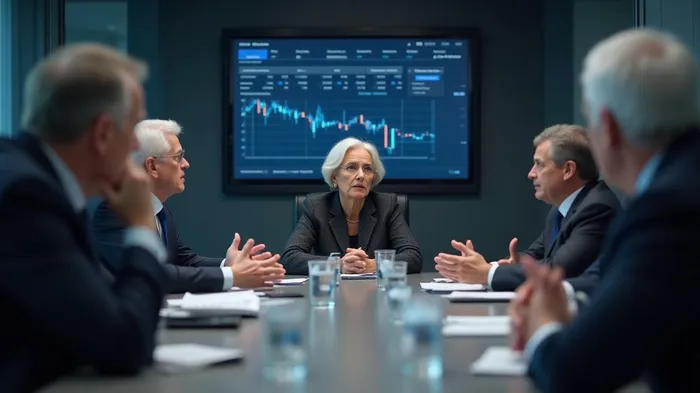ECB Officials Signal Rate Cuts Amid U.S. Tariff Concerns
Gediminas Simkus, a member of the European Central Bank's Governing Council and Governor of the Bank of Lithuania, has voiced concerns about the potential impact of U.S. tariff policies on the Eurozone economy. Simkus noted that the full effects of these tariffs have yet to materialize, and with inflation expected to continue easing, the ECBECBK-- may need to further reduce interest rates.
During an economic conference in Reykjavik on May 9, Simkus observed that while the Eurozone economy showed resilience at the start of the year, recent geopolitical trends, including trade threats from the U.S. President, have had adverse effects. He emphasized that the downward trend in Eurozone inflation is evident, making a rate cut in June almost certain. Simkus also suggested that further rate reductions might be necessary after June, although the exact timing remains uncertain.
The ECB has already lowered interest rates seven times since June of last year. With the potential for U.S. tariffs to slow economic growth, ECB officials have indicated their readiness to take additional measures. Although some policymakers have been more cautious, investors currently anticipate two to three rate cuts this year, with a June reduction being widely expected.
On the same day, OlliOLLI-- Rehn, Governor of the Bank of Finland, echoed Simkus's sentiments. Rehn stated that if the ECB's latest forecasts confirm a slowdown in inflation and growth, he would support further rate cuts. Despite strong economic performance at the beginning of the year, this could be due to European companies accelerating their activities to avoid U.S. tariffs announced in early April. Consequently, economic performance in the coming months might reverse, especially if the EU fails to ease trade tensions with the U.S.
Simkus predicted that the Eurozone's economic growth rate for this year might fall below the ECB's March forecast of 0.9%, with 2026 and 2027 growth rates projected at 1.2% and 1.3% respectively. However, he acknowledged that these new projections might only be slightly lower. Last month, the ECB Chief Economist noted that trade tensions have darkened the economic outlook, but the overall impact remains limited as the economy continues to grow.
In terms of inflation, the overall rate remained at 2.2% in April, with core inflation exceeding expectations. The late timing of Easter this year may have influenced these figures. The slowing wage growth supports the notion that inflationary pressures are easing, reinforced by falling energy prices and a stronger euro, which suggest that inflation will return to the 2% target by the end of the year.
Simkus highlighted several factors that could further depress price increases, including falling oil and gas prices, euro appreciation, and the potential rerouting of cheap goods from the U.S. to Europe. However, he also cautioned against overconfidence, stating that much can change over the next two years.

Stay ahead with real-time Wall Street scoops.
Latest Articles
Stay ahead of the market.
Get curated U.S. market news, insights and key dates delivered to your inbox.

Comments
No comments yet